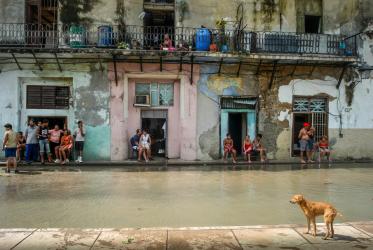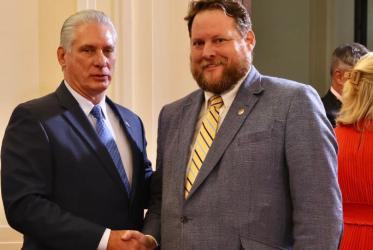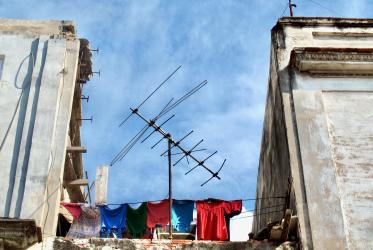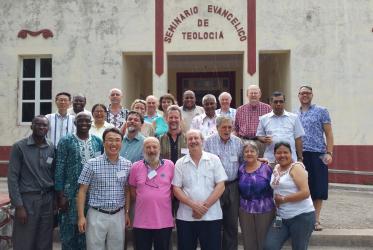Displaying 1 - 20 of 24
#WCC70: A night talk with Fidel Castro
06 September 2018
#WCC70: Una charla nocturna con Fidel Castro
06 September 2018
Diakonia: “a tool to reach abundance of life”
24 July 2018
Seven weeks of Lent highlight water justice in Latin America
12 February 2018
Contributing to God’s mission takes many forms, finds gathering in Cuba
20 September 2016
El PEAPI es un pacificador mundial
19 August 2016
Theologian explores emerging model of empowerment and diakonia
17 December 2015
Un teólogo estudia un nuevo modelo de empoderamiento y diaconía
17 December 2015











